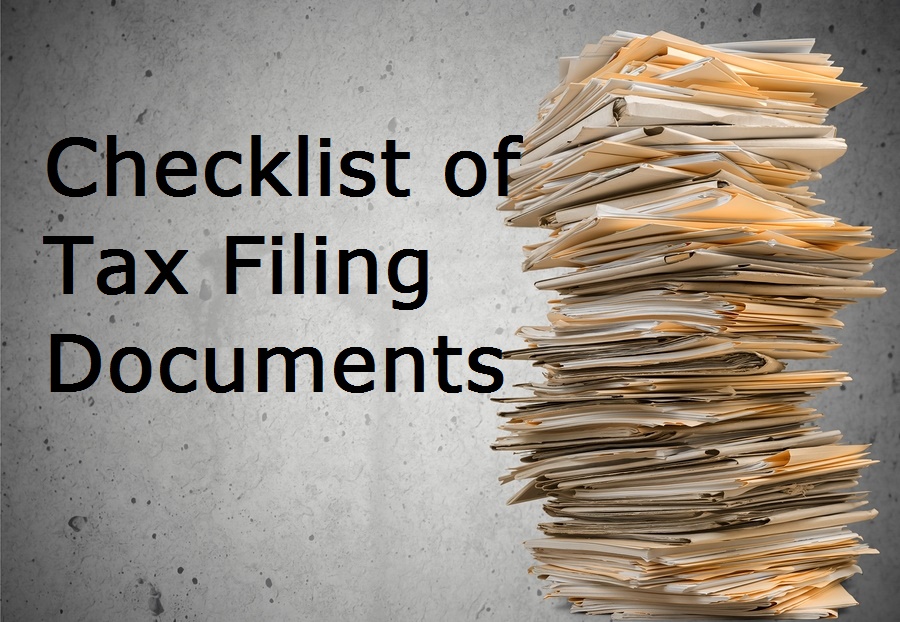3 Essential Healthcare Tax Documents You Need

Understanding the nuances of healthcare tax documentation is crucial for anyone navigating the complexities of health insurance and financial management. This post delves into three key documents essential for healthcare tax purposes, guiding you through each one's role, importance, and how they integrate into your overall tax strategy.
The Importance of Health Insurance Documentation

Health insurance is a significant aspect of managing your finances, offering a buffer against high medical costs. It's vital to understand how your health insurance interactions translate into tax implications:
- Tax Deductions and Credits: Health insurance premiums and other related expenses can potentially lower your taxable income or qualify for tax credits.
- Proof of Coverage: Documentation of insurance coverage is necessary to avoid penalties for not having adequate health insurance.
- Claims and Reimbursements: Having the right documents ensures you can claim reimbursements and file for medical expense deductions accurately.

1. Health Insurance Form 1095-A

Form 1095-A, also known as the Health Insurance Marketplace Statement, is issued to individuals who purchase health insurance through the Health Insurance Marketplace.
What It Includes:

- Personal information for the primary insured and dependents.
- Details of the health plan, including its value and premiums paid.
- Monthly enrollment status for each member.
How to Use It:

- Complete your federal tax return, reporting the second lowest-cost Silver plan to determine potential tax credits.
- Assess your coverage, as failing to maintain coverage could result in tax penalties.
- Be prepared to enter the information on your tax return, typically into Form 8962.
📝 Note: Remember to reconcile your Advance Premium Tax Credit (APTC) on your tax return. Discrepancies can lead to owing taxes or penalties.
2. Health Insurance Form 1095-B and 1095-C

These forms are essential for proving minimum essential coverage (MEC) required under the Affordable Care Act (ACA).
Form 1095-B:

- Provided by health insurers or employers sponsoring self-funded health plans.
- Includes details of the coverage provided, enrollment dates, and covered individuals.
Form 1095-C:

- Issued by employers with 50 or more full-time employees.
- Covers not only health insurance but also employer-provided health coverage offers and details about the employee’s status.
When and How They’re Used:

- Keep these forms for your records to show proof of health insurance coverage.
- If audited, you’ll need to present these forms to demonstrate compliance with the individual mandate.
- While not typically used for tax credit calculation, they’re vital for avoiding penalties related to lack of coverage.
3. Health Savings Account (HSA) Documents

If you have an HSA, understanding and keeping track of associated documents is critical.
HSA Contributions:

- Contributions can be deducted from your taxable income, reducing your tax liability.
- You’ll receive a receipt or statement for any contribution you make, and your employer might report these on your W-2.
Withdrawals:

- Qualified medical expenses are tax-free, but non-qualified withdrawals incur taxes and penalties.
- Maintain receipts or records of all withdrawals and their purpose to ensure tax compliance.
| Document | Description | Who Provides It |
|---|---|---|
| Form 1095-A | Marketplace Health Insurance Statement | Health Insurance Marketplace |
| Form 1095-B | Proof of Health Coverage | Health Insurer or Self-funded Employer |
| Form 1095-C | Employer-Provided Health Insurance Offer | Large Employers (50+ full-time employees) |
| HSA Receipts | Contributions and Withdrawals | HSA Provider |

🌟 Note: Ensure you report HSA contributions correctly on your tax return. Overlooking this can lead to overpayment of taxes.
Final Thoughts: Navigating the realm of healthcare taxes can be intricate, but with a clear understanding of the essential documents and their usage, you're better equipped to manage this aspect of your financial life. Remember, these documents not only help in tax preparation but also in ensuring compliance with healthcare mandates, potentially saving you from penalties or unexpected tax bills. By keeping these documents safe and readily available, you streamline your tax filing process and ensure you're in good standing with tax authorities.
What should I do if I didn’t receive Form 1095-A?

+
Contact the Health Insurance Marketplace. You can log into your account, check your message center, or call the Marketplace Call Center. If necessary, use other proof of coverage documents or complete Form 8962 using estimates.
Can I deduct health insurance premiums on my tax return?

+
If you’re self-employed and meet certain conditions, you may be able to deduct health insurance premiums. However, if you’re an employee and your employer pays for part of your insurance, this deduction generally does not apply.
What penalties can I face for not maintaining minimum essential coverage?

+
Under the ACA, individuals without minimum essential coverage might face a penalty, which can range from a flat fee to a percentage of household income, depending on the tax year in question.
Are all medical expenses deductible on my tax return?
+Only medical expenses that exceed 7.5% of your adjusted gross income can be deducted. Keep detailed records of your expenses, as they must be qualified medical expenses to be deductible.
How do I reconcile my Advance Premium Tax Credit?
+Use Form 8962 to reconcile your Advance Premium Tax Credit. You’ll compare your received APTC with the amount you were entitled to based on your actual income. This might result in a tax refund or you owing money back.



